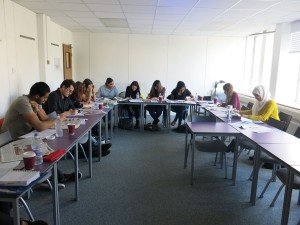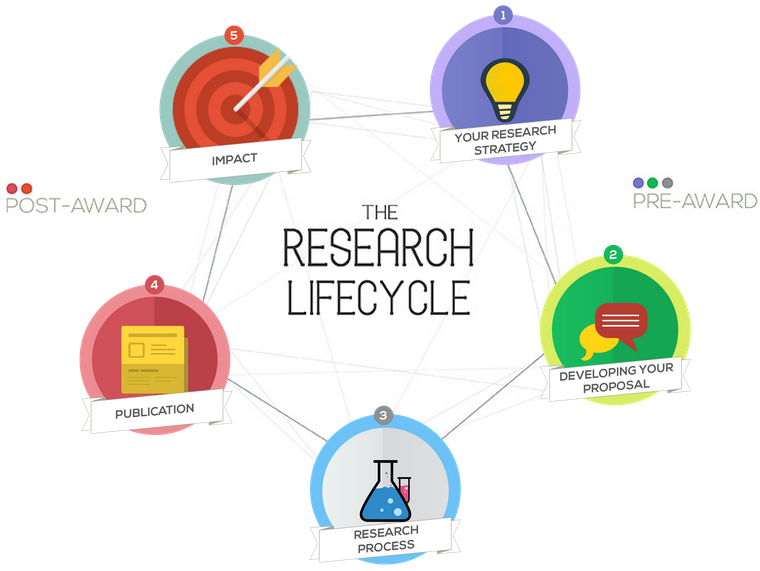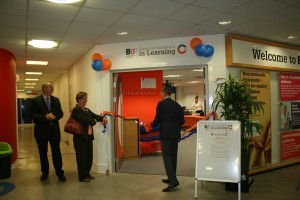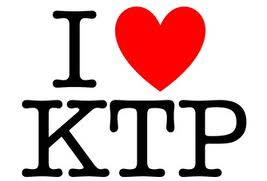The following funding opportunities have been announced. Please follow the links for more information:
The Academy of Medical Sciences, along with other funders has announced that they are inviting applications to the Daniel Turnberg travel fellowship scheme. Daniel Turnberg Travel Fellowships give early-career biomedical researchers the chance to undertake short-term visits to further their research experience and learn new techniques. This scheme aims to build research links and developing ongoing scientific collaborations between the UK and the Middle East. A maximum award amount of £9,000 is available. The closing date for application is 17:00, 19/01/2015.
The Biotechnology and Biological Sciences Research Council (BBSRC), has announced that they are inviting applications to their Flexible interchange programme. The programme (FLIP) supports the movement of people from one environment to a different one to exchange knowledge/technology/skills, developing bioscience research/researchers and addressing their strategic priorities. Awards will typically last up to 24 months, cost up to £150,000 in total at 80% fEC. The deadline for applications is 16:00, 15/10/2014.
The Biotechnology and Biological Sciences Research Council (BBSRC), is also inviting applications to their China Partnering Awards scheme. The aim is to set up partnership links between UK and overseas laboratories, to promote the exchange of scientists, particularly early career scientists and to promote access to facilities. Funds can only be used for travel, subsistence and other activities, such as workshops or exchanges. They are not to fund salary costs, consumables, items of equipment or other research costs, nor to link ongoing single collaborative projects. Typically up to £30,000 over a period of up to 4-years for partnerships with 1 or more Chinese life science laboratories is awarded. The deadline for applications is 16:00, 13/11/2014.
The Biotechnology and Biological Sciences Research Council (BBSRC), is inviting applications to its Super follow-on funding scheme. The programme is designed to support the translation of fundamental research funded by them into practical application, including commercialisation. The aim of the programme is to help researchers maximise the societal and economic benefits of their research. Project duration and funding available differentiates between the types of follow-on fund. The call will open on 01/12/2014 and the application deadline will be 04/02/2015.

Innovate UK has announced that they will be accepting applications to their Innovation in the space sector scheme. This targeted competition for KTPs will support 10 to 12 KTP projects of between six and 36 months, helping to translate the UK’s academic strengths in this area into commercial success. The aim is for businesses to gain the research-driven knowledge needed to develop innovative solutions, in line with the UK’s Space Innovation and Growth Strategy (IGS). Companies will then be better placed to exploit the expanding global space market. Up to £1.3million of funding is available. The deadlines for applications are 01/10/2014, 19/11/2014, and 11/02/2015.
Innovate UK has also announced that they are inviting applications to their World-leading off-highway vehicles scheme. They will invest up to £3m in collaborative R&D projects that will enable significant reductions in off-highway vehicle emissions and/or deliver major improvements in their operational efficiency. The deadline for registration is noon, 05/11/2014, and the deadline for applications is noon, 12/11/2014.
Innovate UK and the EPSRC have announced that applications will now be accepted to the Recovering valuable materials from waste scheme. They are investing up to £4.5million in collaborative R&D projects that seek to increase the recovery of valuable materials from waste streams. They expect projects to last up to 24 months and to have total costs of up to £800,000. This is a two-stage competition that opens for applicants on 12/01/2015. The deadline for registration is at noon, 18/02/2015, and the deadline for expressions of interest is at noon, 25/02/2015.
The Leverhulme Trust has announced that they will soon be inviting applications to their Research Programme Grants scheme. Up to £1.75 million will be available over five years, to enable the exploration of specified research themes through a series of interlinking research projects. Further information on future rounds will be available in autumn 2014.
The Medical Research Council (MRC) is inviting applications to its African Research Leader Scheme 2014/15. The aim is to strengthen research leadership across sub-Saharan Africa (SSA) by attracting and retaining exceptionally talented individuals who will lead high quality programmes of research on key global health issues pertinent to SSA. The African Research Leader (ARL) should be supported by an enthusiastic local research environment and by a strong linkage with a UK partner. Awards will provide support for up to 5 years and should not exceed £750,000 in total. The deadline for applications is 16:00, 27/11/2014.
The Medical Research Council (MRC) has announced a call for hearing aid research networks. Researchers are invited to submit proposals for Hearing Aid Research Networks to develop multidisciplinary, cross-sector collaborations in the areas of optimising devices for individuals and novel methods of transduction. Applicants can request up to £150,000 (80% FEC) for a maximum period of 18 months. The deadline for applications is 16:00, 02/12/2014.
The Medical Research Council (MRC) has announced that it is accepting applications to its Partnership Awards. Partnership Awards aim to stimulate collaborative, mutually beneficial research and partnership between industry and academia and to enhance MRC fellows’ development as research leaders. The awards offer both financial and advisory support for existing MRC fellows. There has been no deadline specified.
The Natural Environment Research Council (NERC) is inviting applications to its Knowledge exchange fellowships scheme. Directed Knowledge Exchange Fellowships work on a topic or with a business sector that the NERC community has identified as needing a dedicated person to accelerate the impact of NERC-funded science, you can find these on the link above. The maximum award amount is £200,000. The deadline for applications is 29/10/2014.
The Natural Environment Research Council (NERC) has also announced that it will soon be inviting applications to its Follow-on fund scheme. The Follow-on Fund is a ‘proof of concept’ fund to support the commercialisation of ideas arising from that NERC-funded research. Up to £250,000 in funding is available. The call will open on 23/09/2014 and will close on 18/12/2014.
The Welcome Trust has announced that they are inviting applications to the Senior Investigator Awards in Society and Ethics. The awards support researchers who have an international track record of significant achievement, who have demonstrated the originality and impact of their research, and who are leading their field. Senior Investigator Awards provide flexible support at a level and length that is sufficient to enable exceptional researchers to address the most important questions about health and disease and their social, political and historical contexts. A Senior Investigator Award might be in the range of £100,000 to £200,000 per year, depending on the needs of your research and your ability to justify the proposed costs. The closing date for 2015 applications is 23/01/2015 for preliminary applications, and 02/04/2015 for full applications.
The Welcome Trust has also announced that they are welcoming applications for the 2015 New Investigator Awards in Society and Ethics. Researchers should be able to articulate a compelling long-term vision for their research and demonstrate the talent, track record and originality to achieve it. New Investigator Awards provide flexible support at a level and length that is sufficient to enable exceptional researchers to address the most important questions about health and disease and their social, political and historical contexts. New Investigator Award might be in the range of £100,000 to £200,000 per year, depending on the needs of your research and your ability to justify the proposed costs. The deadline for preliminary applications is 23/01/2015; the deadline for full applications is 02/04/2015.
Please note that some funders specify a time for submission as well as a date. Please confirm this with your RKE Support Officer.
You can set up your own personalised alerts on ResearchProfessional. If you need help setting these up, just ask your School’s RKE Officer in RKE Operations or see the recent post on this topic, which includes forthcoming training dates up to November 2014.
If thinking of applying, why not add notification of your interest on ResearchProfessional’s record of the bid so that BU colleagues can see your intention to bid and contact you to collaborate.
































 FHSS academics teaching in Nepal
FHSS academics teaching in Nepal New weight change BU paper
New weight change BU paper One week to go! | The 16th Annual Postgraduate Research Conference
One week to go! | The 16th Annual Postgraduate Research Conference Geography and Environmental Studies academics – would you like to get more involved in preparing our next REF submission?
Geography and Environmental Studies academics – would you like to get more involved in preparing our next REF submission? Congratulations to three former BU staff
Congratulations to three former BU staff MSCA Staff Exchanges 2024 Call – internal deadline
MSCA Staff Exchanges 2024 Call – internal deadline Applications are now open for 2025 ESRC Postdoctoral Fellowships!
Applications are now open for 2025 ESRC Postdoctoral Fellowships! Horizon Europe – ERC CoG and MSCA SE webinars
Horizon Europe – ERC CoG and MSCA SE webinars MaGMap: Mass Grave Mapping
MaGMap: Mass Grave Mapping ERC grants – series of webinars
ERC grants – series of webinars